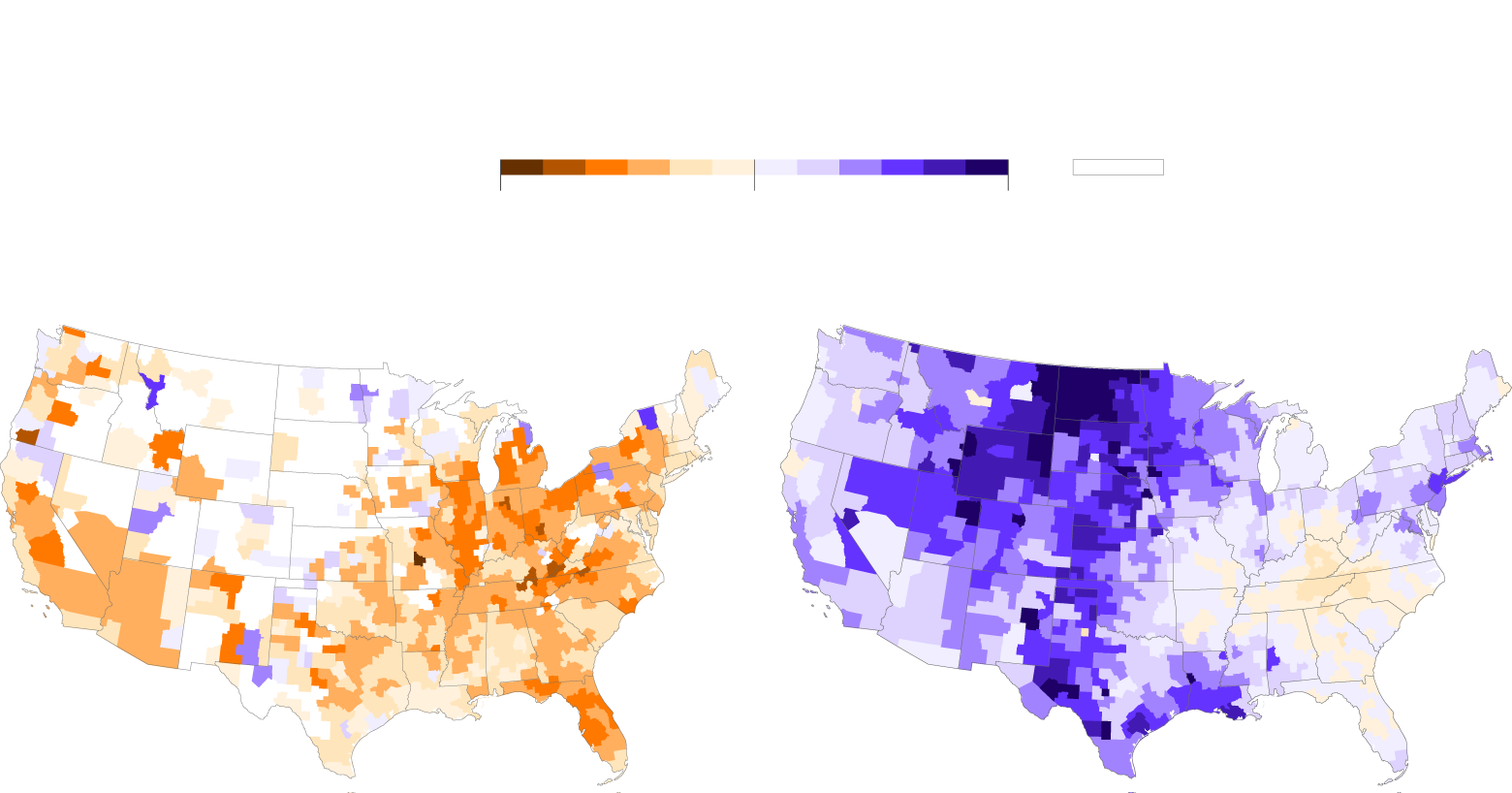
The fastest-growing cities in the U.S. may be adding lots of jobs for well-off people, but many have low rates of upward mobility for lower-income kids growing up there. And it's especially bleak for black males, according to Raj Chetty, Harvard economics professor and director of Opportunity Insights, a research and policy organization.
Why it matters: The extent of racial disparities and economic mobility "is so extreme in the U.S. that it's almost like they're two Americas," Chetty said about the maps above.
The places that have the very highest rates of mobility for black men, like Boston, actually have lower rates of upward mobility than the very worst places of upward mobility for white men, like Charlotte.
Chetty's research showed that job growth and investment happening in Charlotte and Atlanta, for example, aren't creating opportunities evenly, and black male youths are disproportionately being left behind.
What they did: The researchers analyzed outcomes of about 4 million families that moved across neighborhoods and tracked the outcomes of children of low-income parents over 30 years.










